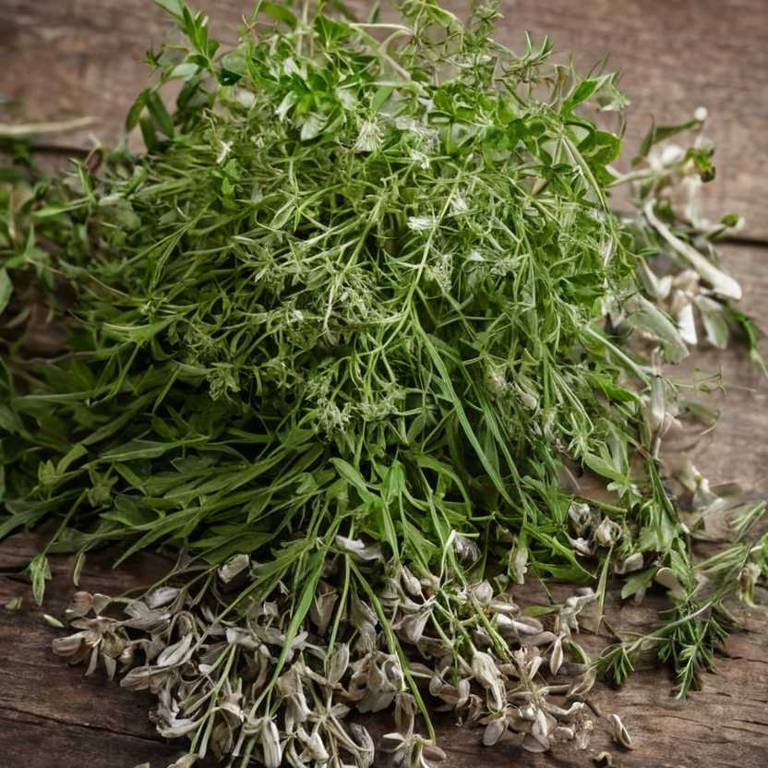10 Best Pfaffia Paniculata Health Benefits

Pfaffia paniculata, also known as "super人参" or "Brazilian ginseng," is a plant native to the Amazon rainforest and is renowned for its potent adaptogenic properties.
It is believed to help the body resist stress and maintain homeostasis by supporting the endocrine and nervous systems. Studies suggest that Pfaffia paniculata may enhance energy levels, improve mental clarity, and support overall vitality. Its rich composition of bioactive compounds, including alkaloids and saponins, contributes to its potential health benefits.
While more research is needed, traditional use and preliminary scientific findings highlight its promising role in promoting physical and mental well-being.
1. Reduces inflammation
Pfaffia paniculata reduces inflammation by containing bioactive compounds such as flavonoids and alkaloids, which possess potent anti-inflammatory properties.
These compounds help inhibit the production of pro-inflammatory cytokines and enzymes like cyclooxygenase-2 (COX-2), thereby alleviating inflammatory responses in the body. Studies have shown that Pfaffia paniculata may be effective in reducing inflammation associated with conditions such as arthritis and skin disorders. Its natural anti-inflammatory effects make it a valuable herbal remedy for managing chronic inflammatory diseases.
Incorporating Pfaffia paniculata into a wellness routine can offer a natural alternative to conventional anti-inflammatory treatments.
2. Supports digestion
Pfaffia paniculata supports digestion by promoting the healthy function of the gastrointestinal tract.
It contains bioactive compounds that may help regulate bowel movements and ease digestive discomfort. This plant is known to reduce inflammation in the digestive system, which can improve overall gut health. Its natural properties may also stimulate the production of digestive enzymes, enhancing nutrient absorption.
As a result, Pfaffia paniculata can be a beneficial supplement for those experiencing digestive issues.
3. Increases vitality
Pfaffia paniculata increases vitality by enhancing energy levels and promoting overall physical and mental well-being.
This adaptogenic herb is known to support the body's ability to cope with stress, thereby improving stamina and endurance. Its rich nutrient profile includes antioxidants, amino acids, and essential minerals that contribute to cellular health and metabolic function. Regular consumption of Pfaffia paniculata may help individuals feel more alert, active, and rejuvenated throughout the day.
As a result, it is often used as a natural supplement to boost vitality and enhance quality of life.
4. Boosts energy levels
Pfaffia paniculata boosts energy levels by enhancing the body's metabolic processes and improving cellular respiration.
This adaptogenic plant contains bioactive compounds that help the body cope with stress and fatigue, leading to increased vitality. It is known to support the production of ATP, the energy currency of cells, which contributes to sustained energy throughout the day. Regular consumption of Pfaffia paniculata can help individuals maintain consistent energy levels without the need for stimulants.
As a natural supplement, it offers a balanced and sustainable way to enhance physical and mental performance.
5. Improves immune function
Pfaffia paniculata improves immune function by enhancing the activity of the body's natural defenses.
This herb contains bioactive compounds such as alkaloids and flavonoids, which help modulate immune responses. It stimulates the production of white blood cells, which are essential for fighting off infections and diseases. Regular consumption of Pfaffia paniculata may reduce the risk of illnesses by strengthening the immune system.
Its immune-boosting properties make it a valuable supplement for overall health and wellness.
6. Promotes skin health
Pfaffia paniculata promotes skin health by providing essential nutrients that support the body's natural repair processes.
It is rich in antioxidants, which help neutralize free radicals and reduce oxidative stress, common contributors to skin aging and damage. The plant's bioactive compounds may enhance skin elasticity and hydration, leading to a more youthful appearance. Additionally, Pfaffia paniculata has anti-inflammatory properties that can soothe skin irritations and promote a healthier complexion.
Regular use of Pfaffia paniculata may contribute to overall skin vitality and resilience against environmental stressors.
7. Lowers stress levels
Pfaffia paniculata lowers stress levels by modulating the body's physiological and psychological responses to stress.
This adaptogenic herb contains bioactive compounds that support the hypothalamic-pituitary-adrenal (HPA) axis, helping to regulate cortisol levels and reduce the body's stress response. Studies suggest that Pfaffia paniculata may enhance resilience to stress by promoting a sense of calm and improving emotional balance. Its ability to reduce anxiety and promote relaxation makes it a valuable natural remedy for managing chronic stress.
Regular use of Pfaffia paniculata has been associated with improved mood and overall well-being in individuals under prolonged stress.
8. Improves sleep quality
Pfaffia paniculata improves sleep quality by promoting relaxation and reducing anxiety, which are common contributors to sleep disturbances.
The plant contains bioactive compounds such as flavonoids and alkaloids that may help regulate the nervous system and enhance the body's natural sleep-wake cycle. Studies suggest that Pfaffia paniculata can increase the duration and depth of sleep, leading to more restful and rejuvenating rest. Its calming effects may also help alleviate insomnia and other sleep-related disorders.
As a result, incorporating Pfaffia paniculata into one's routine can support better sleep hygiene and overall well-being.
9. Enhances mental clarity
Pfaffia paniculata enhances mental clarity by supporting cognitive function and reducing mental fatigue.
This adaptogenic herb is believed to help the body manage stress, which in turn can improve focus and mental sharpness. Its active compounds may promote the production of neurotransmitters that aid in memory and concentration. Regular use of Pfaffia paniculata may lead to better decision-making and heightened alertness.
As a result, it is often sought after by individuals looking to maintain or improve their mental performance.
10. Aids in weight loss
Pfaffia paniculata aids in weight loss by enhancing metabolic function and increasing energy expenditure.
This plant contains compounds that may help regulate appetite and reduce cravings, supporting healthier eating habits. Its traditional use in South America suggests potential for promoting fat burning and improving body composition. Studies indicate that Pfaffia paniculata may also help reduce water retention, contributing to a leaner appearance.
Overall, it offers a natural approach to weight management when combined with a balanced diet and regular exercise.